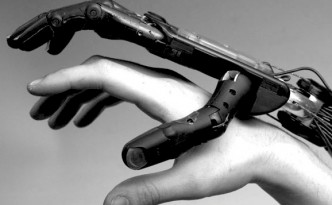Aggregated News

Biotechnology and the rise of AI may split humankind into a small class of ‘superhumans’ and a huge underclass of ‘useless’ people. Once the masses lose their economic and political power, inequality levels could spiral alarmingly
Inequality goes back to the Stone Age. Thirty thousand years ago, bands of hunter-gatherers in Russia buried some members in sumptuous graves replete with thousands of ivory beads, bracelets, jewels and art objects, while other members had to settle for a bare hole in the ground.
Nevertheless, ancient hunter-gatherer groups were still more egalitarian than any subsequent human society, because they had very little property. Property is a pre-requisite for long-term inequality.
Following the agricultural revolution, property multiplied and with it inequality. As humans gained ownership of land, animals, plants and tools, rigid hierarchical societies emerged, in which small elites monopolised most wealth and power for generation after generation.
Humans came to accept this arrangement as natural and even divinely ordained. Hierarchy was not just the norm, but also the ideal. How could there be order without a clear hierarchy between aristocrats and commoners...



